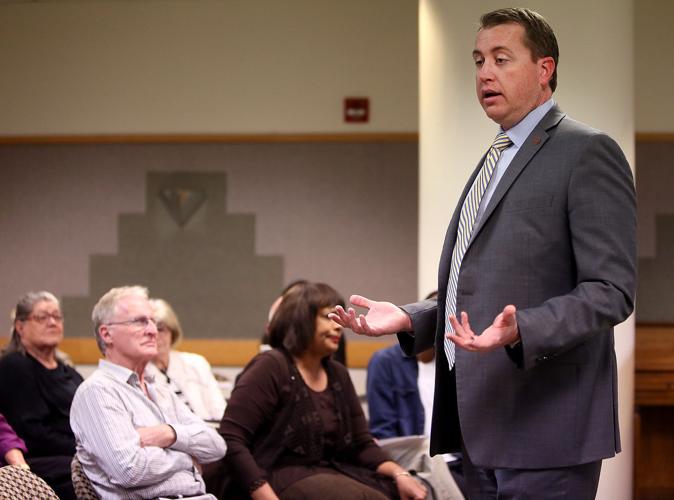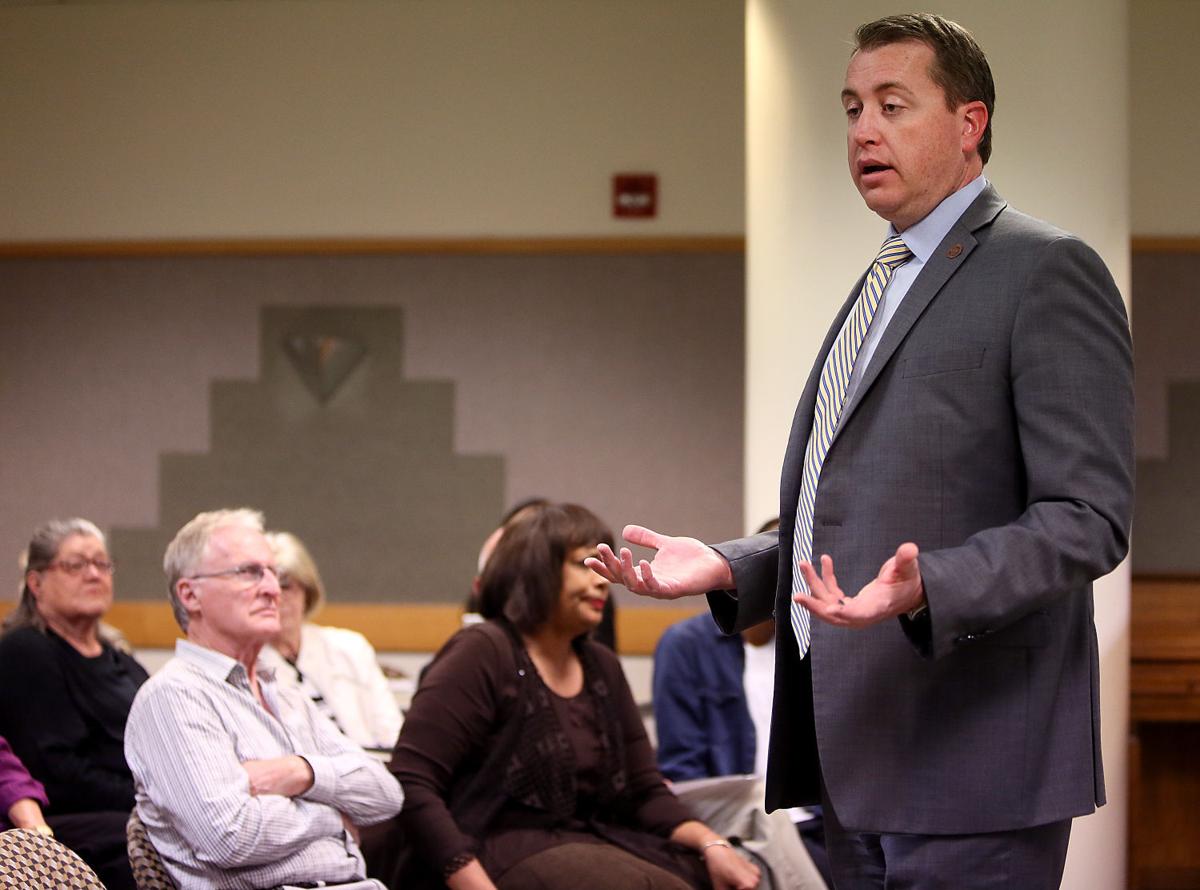Prop. 123 is galling in so many ways.
The ballot proposition that we’ll be voting on in May would settle a lawsuit over education funding and establish a mechanism for funneling $3.5 billion to Arizona public schools over 10 years. Sounds great, right? But it would also:
- Delay an inevitable tax increase for education, foisting it on future politicians.
- Allow state legislators and the governor to use surpluses to cut taxes in the meantime.
- Set an arbitrary cap, 49 percent, on the proportion of the state budget that can go to education.
- Establish a horrible precedent for how the Legislature can flout the voters’ will.
There are other annoying aspects to the deal, brokered by Gov. Doug Ducey’s office, between state legislative leaders and representatives of the education groups suing the state. Those are just a few of the lowlights.
But here’s the catch. After talking, mulling and griping over all those drawbacks for months, I can’t help but conclude Prop. 123 is our only option.
You want a different deal? Then elect a different Legislature and governor.
This issue goes back, as you may remember, to Prop. 301, which we voters passed in 2000. It raised the state sales tax by six-tenths of 1 percent for 20 years, with the proceeds going to K-12 education. The initiative also required that the funding increase at the rate of inflation or 2 percent, whichever is lower, every year.
But when the recession hit and state tax revenue plummeted, the Legislature decided it could not afford to pay the inflation adjustments starting in the 2009-2010 school year. School districts filed suit, and judges ruled in their favor, saying schools must be paid inflation adjustments annually and were also owed back pay for the skipped adjustments. The Legislature refused to pay and continued to fight.
A key issue — what Ducey termed a potential constitutional crisis — was how the judicial branch could force the legislative branch to make an appropriation. The judges could say the Legislature is violating the law as established by voters, but they couldn’t make lawmakers hand over the money.
When negotiations for settling the case began, the Legislature’s power lay in its ability to drag out the case, and the schools’ power in the judgments they had won and likely would continue to win. Their problem was they couldn’t collect on those judgments, which would take more time as appeals dragged on.
Andrew Morrill, the president of the Arizona Education Association teachers’ union, emphasized, when my colleague Yoohyun Jung and I spoke with him last month, that this settlement was the best schools could get. It includes some notable concessions from the Legislature, including increased funding that does not have strings attached. School districts don’t have to meet any arcane and politicized requirements in order to get the new money.
The schools also made big concessions. They settled for 72 percent of the funding increase that they deserved. And they accepted triggers that would allow the Legislature to temporarily stop the new funding arrangement. One trigger kicks in if the amount that the state spends on public education — now 42 percent of the budget — hits 49 percent. It’s an arbitrary number, indefensible as far as I’m concerned.
Money for the deal would come from the state land trust fund. Right now 2.5 percent of the fund is distributed each year — an amount aimed at preserving the principal. Prop. 123 would raise the rate to 6.9 percent for 10 years. However, triggers would stop the withdrawals if the balance of the fund goes down. And over the long run, even these large withdrawals will be dwarfed by new sales of the vast remaining state lands.
The most important thing to remember, as Morrill put it, is “There is no plan B.”
If we voters reject Prop. 123, it’s back to court with no promise of when the lawsuit will be resolved. It could take a couple of more years to come to the next settlement. Meanwhile, teachers keep fleeing the state and schools continue to shrivel.
Now, that’s not to say that we avoid lawsuits if we pass the proposition. In fact, we’re guaranteed litigation no matter which way we vote.
State Treasurer Jeff DeWit is leading part of the opposition and told me he will likely file suit if the proposition passes. As treasurer, he oversees the land trust fund. He argues that the larger withdrawals could illegally cut into the principal of the fund.
“You’re trading an existing lawsuit for a new one that would take another five years,” DeWit warned.
But it appears to me that the risk of delay attached to DeWit’s threatened lawsuit is less than that of continuing the original lawsuit. I spoke Tuesday with John Shadegg, the former U.S. House member from Arizona who in the late 1990s shepherded through Congress the last bill amending the federal law that governs the state land trust.
That bill said the land trust funds may be distributed according to the terms of Arizona’s Constitution. DeWit’s side may argue that any change to the way the fund’s money is distributed by the state under the constitution must also be approved by Congress. Shadegg disagrees.
“If you read the language that was adopted last time, a very strong argument can be made that the language Congress pushed through contemplated further changes by the state of Arizona,” he said.
If that’s not true, Shadegg said, it would still not be a hard task to get a new amendment passed by Congress allowing for the withdrawals permitted by Prop. 123.
“Even if in an abundance of caution, the state pursued an amendment to the enabling act, it would be passed without a struggle,” he said.
So yes, it’s terrible to be put in the position of having to pass this proposition as the only way to increase school funding. Our Legislature should do better on their own by finding a permanent solution rather than a temporary fix.
But no, this is not the final word on the way we finance our schools. It’s the beginning of the next phase of the conversation.
If you don’t like the way this Legislature and governor are handling it, then elect somebody new.







